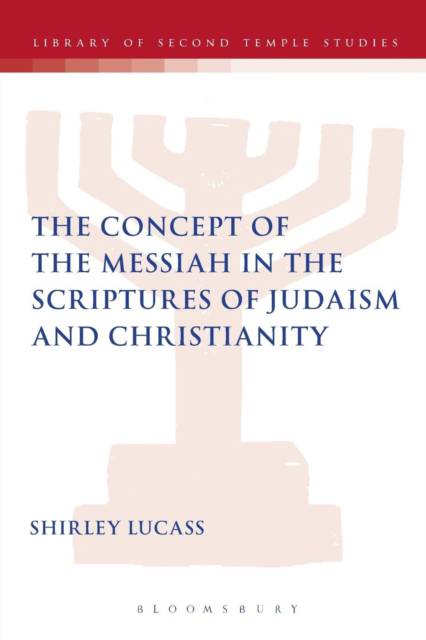
- Afhalen na 1 uur in een winkel met voorraad
- Gratis thuislevering in België vanaf € 30
- Ruim aanbod met 7 miljoen producten
- Afhalen na 1 uur in een winkel met voorraad
- Gratis thuislevering in België vanaf € 30
- Ruim aanbod met 7 miljoen producten
Zoeken
The Concept of the Messiah in the Scriptures of Judaism and Christianity
Lucass Shirley
€ 88,45
+ 176 punten
Omschrijving
For 2000 years Judaism and Christianity have been at odds with one another. The problem at the heart of the division is the concept of messiah.
Shirley Lucass looks directly at the concept of messiah from an historical perspective and examines its roots in ancient Jewish literature, and its development within the Christian tradition, aiming not only to trace the biblical and extra-biblical developments of the concept, but to outline a platform for religious dialogue. Lucass begins with a survey of methodological approaches, and then moves on to consider the origins of the messiah concept in ancient near eastern kingship, the 'anointed' in the Second Temple period and the messiah as outlined in the New Testament and in post 70 CE Messianism. Lucass contends that the New Testament concept of messiah is not inconsistent with, nor incompatible with the Jewish antecedent traditions, and it is this conclusion which enables her to present a valuable chapter on the implications of this study for inter-religious dialogue.
Shirley Lucass looks directly at the concept of messiah from an historical perspective and examines its roots in ancient Jewish literature, and its development within the Christian tradition, aiming not only to trace the biblical and extra-biblical developments of the concept, but to outline a platform for religious dialogue. Lucass begins with a survey of methodological approaches, and then moves on to consider the origins of the messiah concept in ancient near eastern kingship, the 'anointed' in the Second Temple period and the messiah as outlined in the New Testament and in post 70 CE Messianism. Lucass contends that the New Testament concept of messiah is not inconsistent with, nor incompatible with the Jewish antecedent traditions, and it is this conclusion which enables her to present a valuable chapter on the implications of this study for inter-religious dialogue.
Specificaties
Betrokkenen
- Auteur(s):
- Uitgeverij:
Inhoud
- Aantal bladzijden:
- 256
- Taal:
- Engels
- Reeks:
- Reeksnummer:
- nr. 78
Eigenschappen
- Productcode (EAN):
- 9780567153975
- Verschijningsdatum:
- 23/05/2013
- Uitvoering:
- Paperback
- Formaat:
- Trade paperback (VS)
- Afmetingen:
- 156 mm x 234 mm
- Gewicht:
- 358 g

Alleen bij Standaard Boekhandel
+ 176 punten op je klantenkaart van Standaard Boekhandel
Beoordelingen
We publiceren alleen reviews die voldoen aan de voorwaarden voor reviews. Bekijk onze voorwaarden voor reviews.








